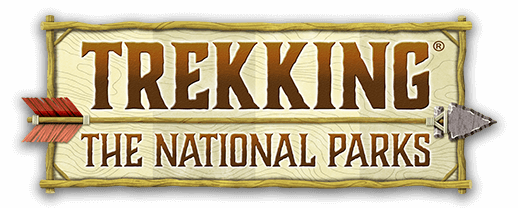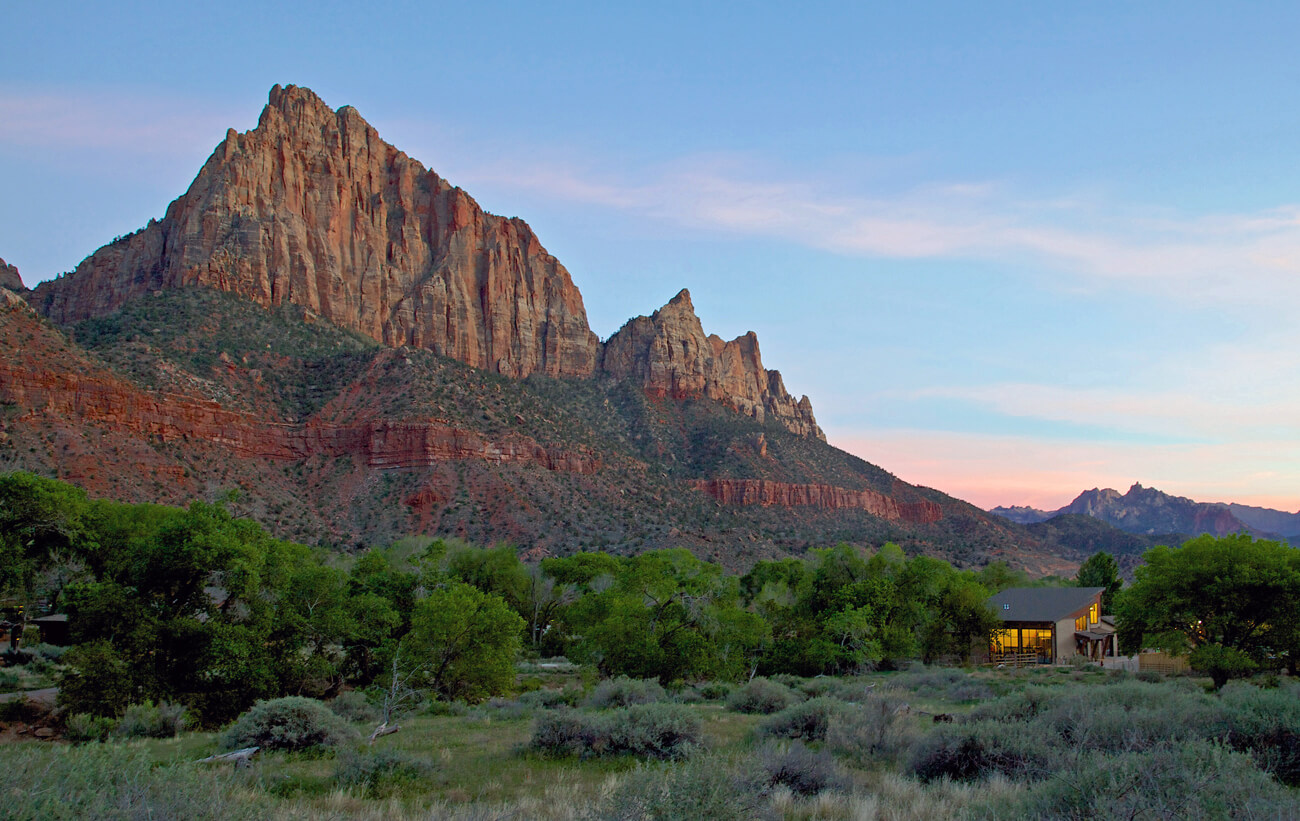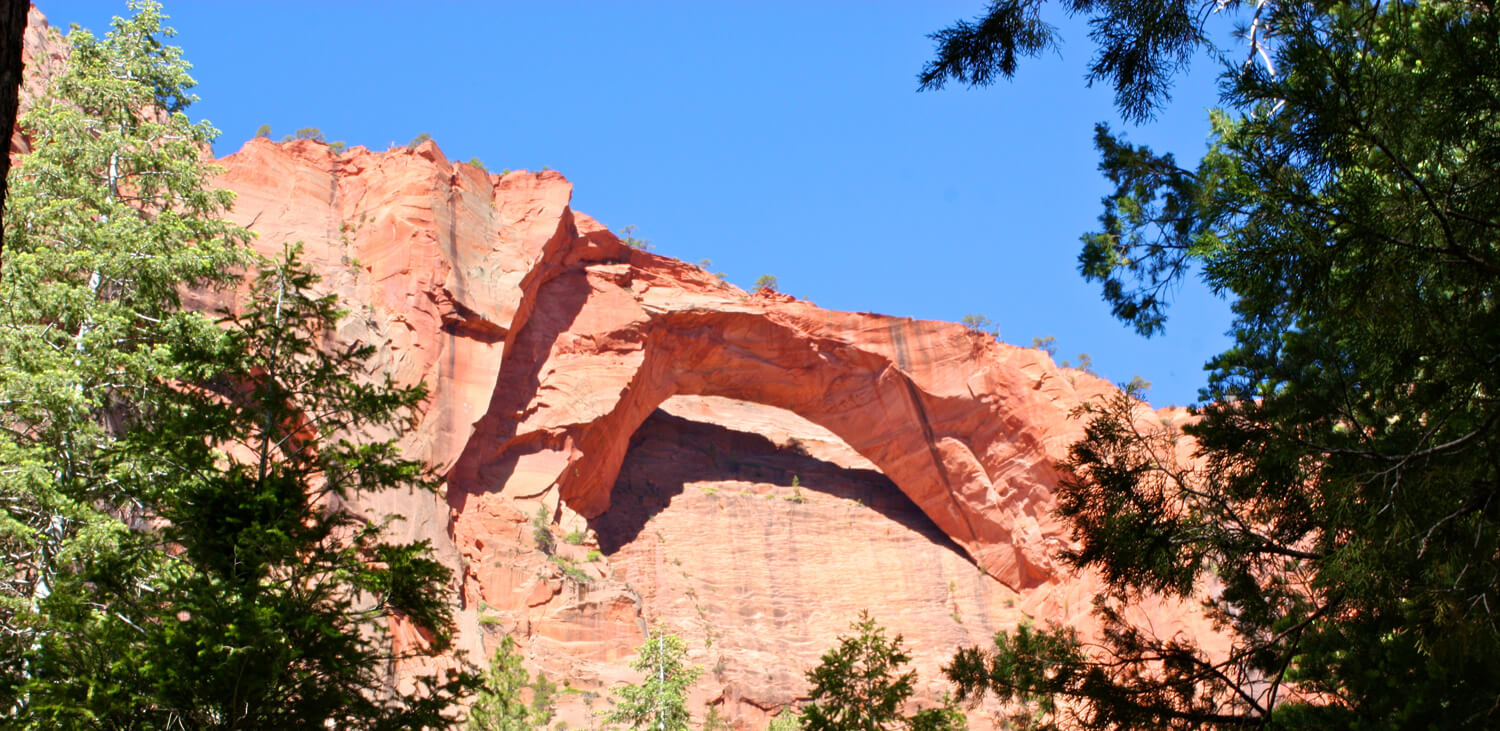Zion
Located: Utah - Established: November 19, 1919
The Park: Situated in southwestern Utah, what is now Zion National Park was originally named Mukuntuweap by explorer John Wesley Powell. In 1909, president William Howard Taft announced the formation of Mukuntuweap National Monument, shocking local residents and Mormons who had referred to this iconic canyon as Zion.
In 1918, acting National Park Service Director, Horace Albright, boldly took action and changed the name of what would become the first of Utah’s five National Parks to Zion National Monument. A year later, Congress re-designated the canyon as Zion National Park.
The Watchman, located near the park entrance overlooks the entire Springdale area.
In 1956, Kolob Canyon (located northwest of Zion Canyon) was added to the park’s domain. Kolob Canyon is a quiet reprieve from the hustle-bustle of its southeastern sister –Zion Canyon, the park’s main corridor.
Getting there: The main corridor of Zion National Park (the first of Utah’s “Mighty Five”) is located in the southwestern section of the state off of SR-9 about 45 miles northeast of St. George. The entrance to the Kolob Canyons sector is located about 20 miles south of Cedar City off I-15.
When to visit: The park is always open; however, some services and facilities may close seasonally. Most of the park visitors come during the busy summer months. To avoid crowds, plan to visit before school lets out in the spring or after school resumes in the fall. Fall is considered the ideal time to visit Zion.
What to do: According to the NPS, backpacking, biking, bird watching, camping, canyoneering, climbing, hiking, horseback riding, river trips and much more are the many activities awaiting visitors to Zion.
Kolob Arch
For us, hiking is the primary park activity when visiting any of our country’s Natural Cathedrals. The very first day hike we took on our quest to trek about all 59 of our country’s fabulous parks was the La Verne Creek Trail out to Kolob Arch. Kolob Arch is the world’s second largest freestanding natural arch. Along this 14-mile round trip, you’ll be exposed to the beauty and grandeur of a forested red rock canyon.
The "trail" leading out to the area known as Angel's Landing.
For a much more exhilarating trekking experience, hike out to Angel’s Landing! To reach the point where “Angel’s land,” you first trek up Walter’s Wiggles – a series of 21 switchbacks on a very steep incline. After “wiggling” your way up the trail, you’ll come to Scout Lookout. This is the turnaround point for those who wish NOT to brave the last half-mile out to the Landing.
Walter's Wiggles
The final section of this adrenaline-charged hike is noted for it’s extremely sharp cliff drop-offs. One particular segment of Angel’s Landing features a thirty-foot long, two-foot wide trail with a thousand foot dropoff on either side of the razor-thin ridgeline! However, there is a chain you can grasp as you tread across it!
The Narrows. If steep drop-offs aren’t appealing, slosh along the Virgin River through a cool 16-mile long slot canyon called the Narrows. The Narrows is the narrowest section of Zion Canyon and hiking it means wading upstream along the Virgin River. The trail is virtually the river!
Where to stay: The Zion Park Lodge, located three miles from the southern park entrance, features delightful “deluxe cabins” restored to their original historic ambiance.
As for camping, Zion offers three campgrounds – The South and Watchman Campgrounds are located in Zion Canyon and host a total of 303 campsites. Lava Point Campground offers 6 primitive sites.
Canyon Overlook pre-dawn
Memorable moments: Trekking to Kolob Arch. Hiking up Walter's Wiggles and on to Angel's Landing! Exploring the Watchman Trail.
Trivia: Zion National Park is one of the few parks with a trail where pets are allowed. The “pet friendly” Pa'rus Trail winds along the Virgin River for 2 miles at the entrance to Zion Canyon.
Banner: Waters of the Virgin River.
Experience these Check List:
- Stop by the park's two Visitor Centers
- Take the Zion Canyon Scenic Drive
- Experience Angel’s Landing!
- Hike to Kolob Arch (North Unit)
- Wade up the Narrows
- Trek up Watchman Trail
- Enjoy a Zion Canyon sunrise/sunset
Enjoying a break at the base of Kolob Arch during our 4th park visit.
The Watchman and the Virgin River. Photo by Andrew Thomas - our Australian friend.








